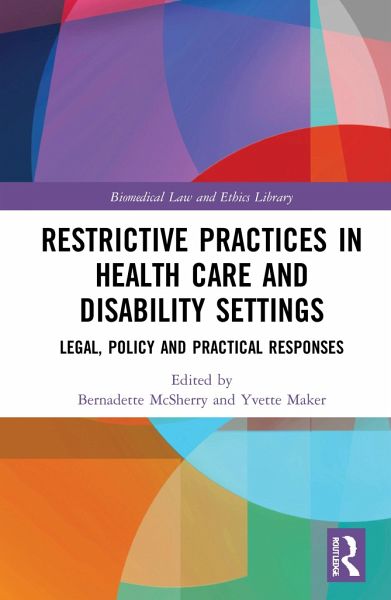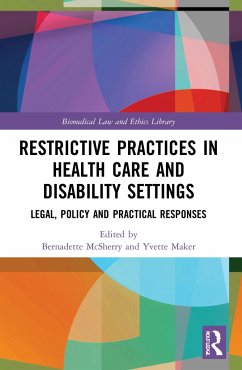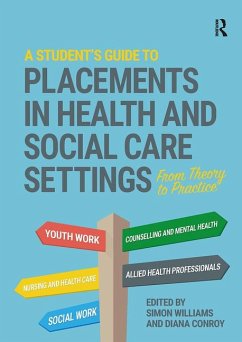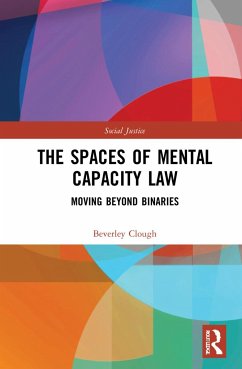
Restrictive Practices in Health Care and Disability Settings
Legal, Policy and Practical Responses
Herausgeber: Mcsherry, Bernadette; Maker, Yvette
Versandkostenfrei!
Versandfertig in 1-2 Wochen
168,99 €
inkl. MwSt.

PAYBACK Punkte
84 °P sammeln!
This book explores different models of regulating the use of restrictive practices in health care and institutional settings. It will be invaluable to regulators, policymakers, lawyers, clinicians, consumer advocates and academics studying the use and regulation of restrictive practices in mental health, disability and aged care.












